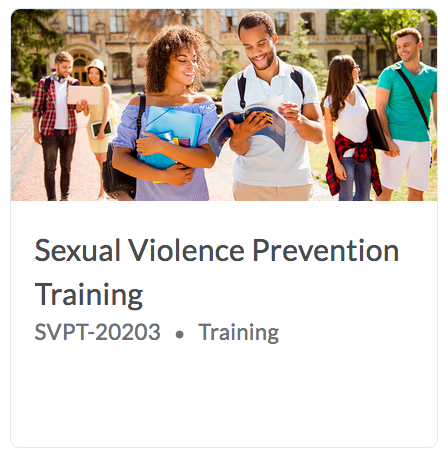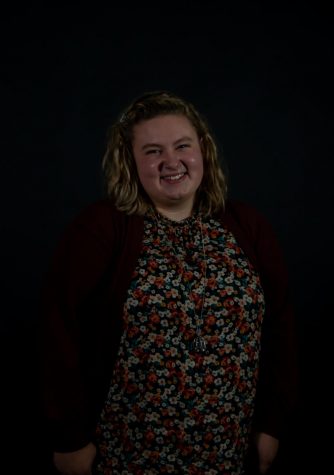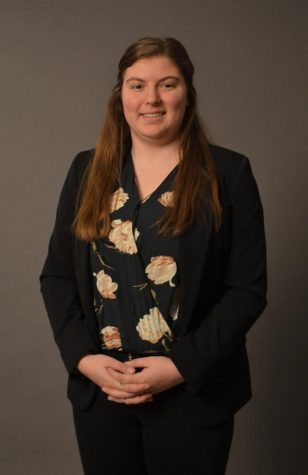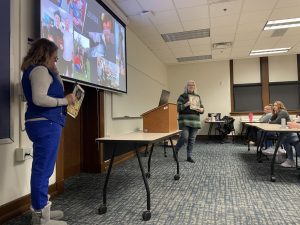Minnesota State implements new training
Students create “#MeToo” signs during “Take Back the Night” on April 9. “Take Back the Night” is an event open to the public to support survivors of gender-based violence. Starting during the fall 2019 semester, the Minnesota State system implemented a new Sexual Violence Prevention Training program through D2L Brightspace in hopes of combating sexual and gender-based violence.
September 25, 2019
A new Sexual Assault Prevention Training has been released to campus students in an effort to reduce the number of sexual assaults at Minnesota State Colleges. However, this effort may be in vain, as some students expressed concern that the training, and other systems set in place to protect students, do not do nearly enough.
In past years as a first-year or transfer student at Winona State University, students went through similar mandated training through D2L Brightspace. However, the new training, which was put out by the Minnesota State system on D2L, includes a few new pieces of information.
As started by Brent Glass, associate vice chancellor of student affairs and enrollment management for Minnesota State, one of the key changes was the inclusion of affirmative consent, which is clear and informed agreement to participate in a sexual act. This is the opposite of implied consent, which can only be violated if a person expressly says “no” and is ignored. The other key change is the development of the bystander intervention education.
Lori Mikl, Title IX director for Winona State, explained why this program was required for all students, not just incoming first-year and transfer students.
“Freshmen last year would have taken the previous module,” Mikl said. “They wouldn’t have gotten the definition of affirmative consent in that one, and that [definition] is in the new one.”
Though the Minnesota State and Winona State staff endorse this training, many students do not think this is enough. Madelyn Fryer, a junior psychology major, believes there is a lot more the university could be doing for survivors of sexual violence.
“The sexual violence prevention class that everyone has to take on D2L is important, but I don’t believe that it is enough,” Fryer said. “As someone who has gone through the Title IX office, and seen other people go through it, more needs to be done.”
Fryer believes that the process that it takes to report, interview and hear back with a verdict takes longer than necessary, and that the contact kept with survivors is not nearly enough.
Additionally, she feels as though survivors should not have to go through the module, as it makes the person have to relive the trauma they endured, which can interfere with physical and mental health, relationships and school.
“I understand that the university is trying to bring awareness and prevention to the school, but they should also have a survey on who actually has been assaulted at the school or within the area,” Fryer said. “The university needs to do a better job at not only caring about their students, but especially those who have gone through this. Not only does it bring back the memories of what happened, but it affects your daily life with school and such.”
Madelyn Hall, an applied and professional writing, Spanish and literature and language major, sees an additional issue with the D2L training.
“There is almost no responsibility
for the perpetrator, which is frustrating,” Hall said. “I know there was a section on what constitutes consent, but that’s not comparable to the depth of explaining prevention and interruption techniques. This disparity in depth makes it seem as though sexual violence is up to the victim or bystanders to prevent or deal with.”
Another issue some students see is the lack of follow-through with the threat of registration holds for this year’s students who have not completed the training.
“By state law, new and incoming students are required to complete sexual assault prevention programming within ten days into the start of the semester,” Mikl said. “This year, we are not putting in registration holds for students who don’t complete it…There won’t be any detriment to students this year if they don’t complete it.”
While there is no current consequence if students do not complete the training, Mikl urges students to complete it. If students have not completed the training yet or would like to refresh their memories, the program is still available on D2L.
There are other steps the university has taken in order to assist those who have experienced sexual assault. According to the on-campus clinic website, a SANE nurse is available to complete evidentiary exams, which is used
to collect physical evidence of an assault, as well as STI and pregnancy testing, all of which are free to the person being tested.
While students have shown support for the SANE nurse addition to the school, others see its drawbacks.
Elaina Peterson, a senior student at Winona State whose name has been changed to protect their privacy, was assaulted her first year at Winona State, and refused to come forward to school authorities until recently.
“I wasn’t ready,” Peterson said. “Nobody is ever ready to come out right away and say they were raped. The nurse is great and all, but I think we need systems in place for when students finally get the courage to come forward after a few months or years, because that’s how long it takes a lot of victims to come forward.”
Afraid of vengeance from her rapist and his friends, Peterson refused to come forward to the university about the assault. After looking online, she tried to contact the university-run support group but received no responses. Only after talking with friends and family years after the event did she want to finally report. However, her report was denied and her rapist walked away with no consequences.
“The university website says that Winona State cares about students, yet they treat alcohol violations more seriously than they treat sexual assaults,” Peterson said. “I don’t know a woman who hasn’t been catcalled, harassed or assaulted, and it still isn’t taken seriously. I love this university as a place of learning, but it clearly doesn’t care about us.”
The Sexual Violence Policy, which was last updated over 10 years ago, is still on the Winona State website. It lists the rights of survivors under the Minnesota State Statute. However, there are also many other resources for students. RE Initiative offers a variety of services, such as education about consent and gender-based violence, peer advocates to accompany to the emergency room and through the legal process and they staff the confidential 24/7 gender-based violence hotline for both Winona State and Southeast Tech.

Starting during the fall 2019 semester, the Minnesota State system implemented a new Sexual Violence Prevention Training program through D2L Brightspace.




































